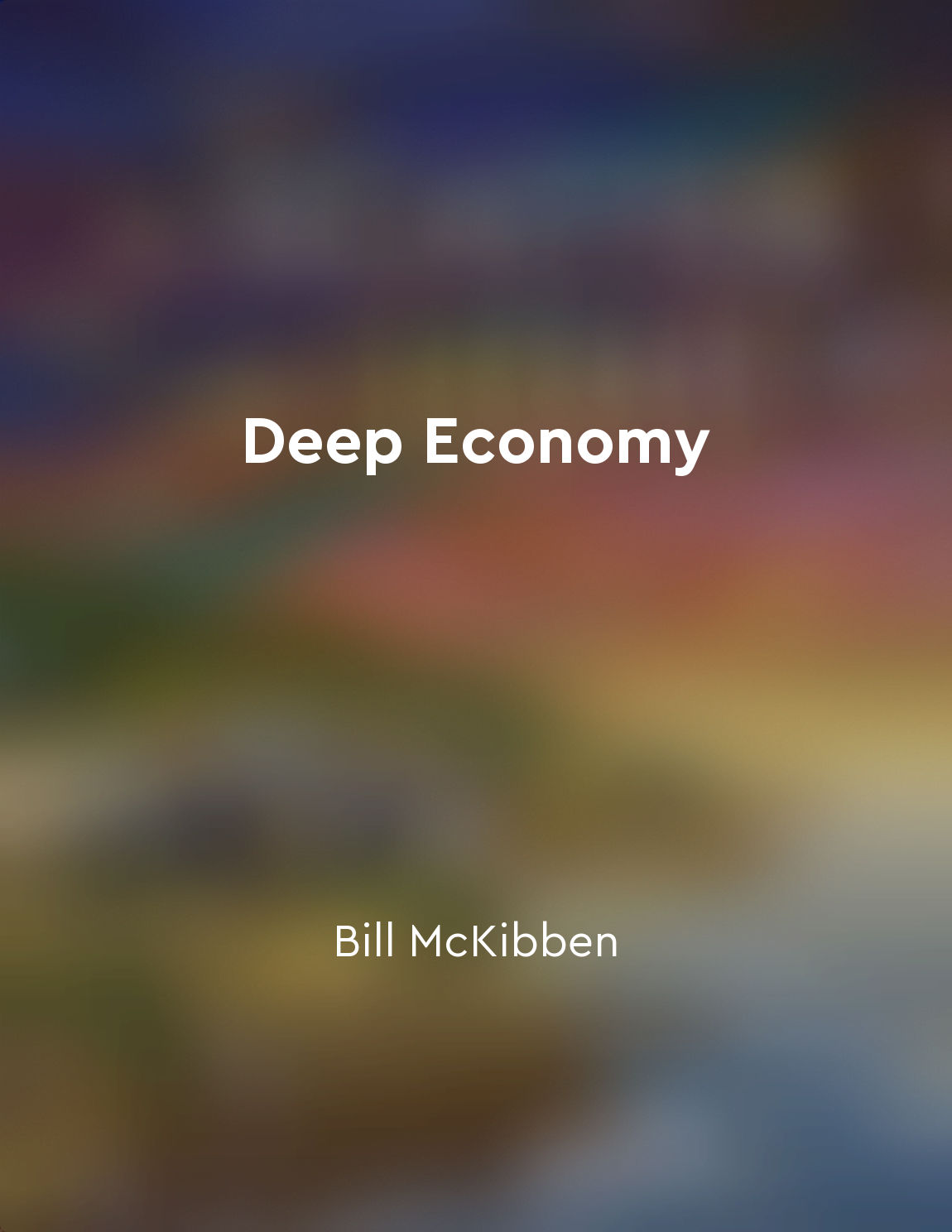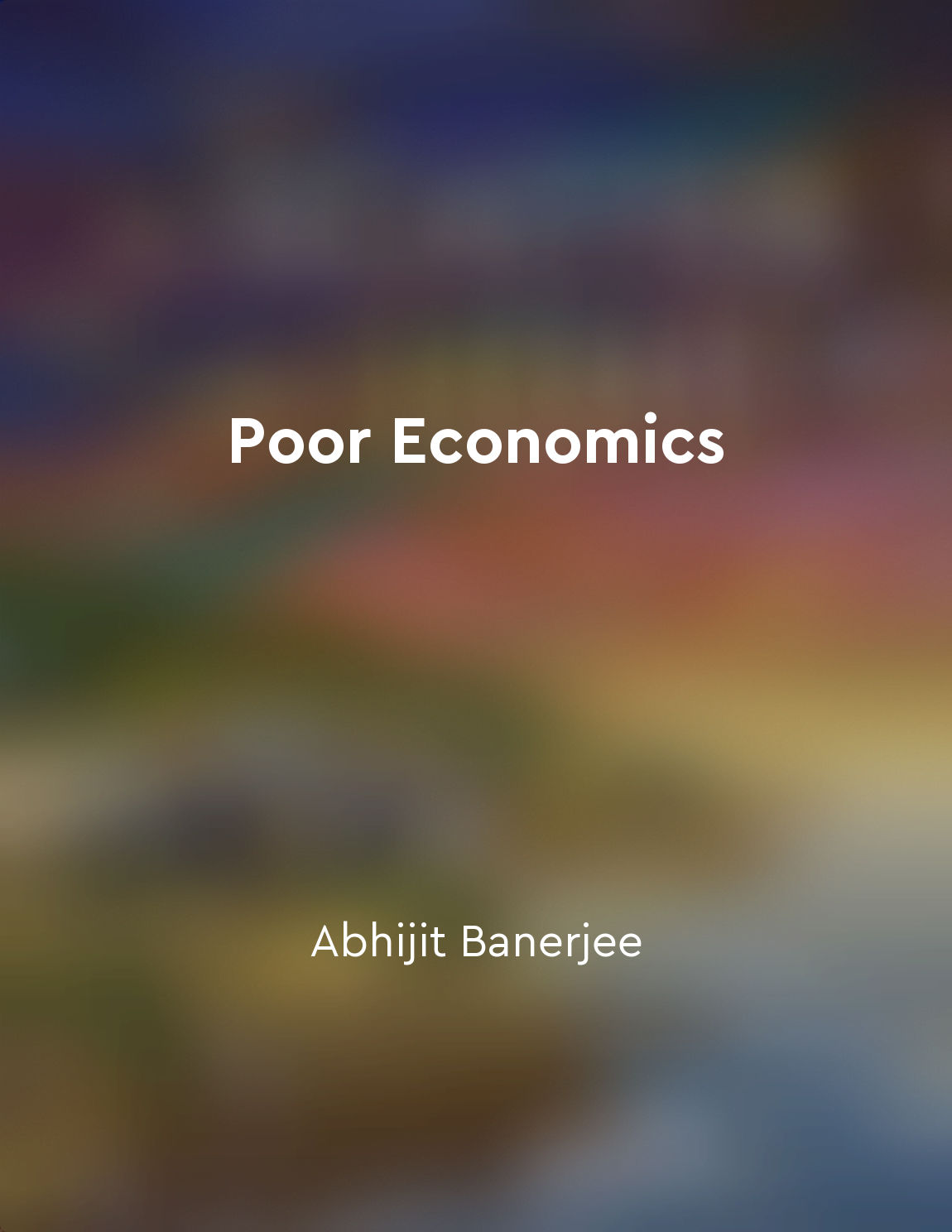Social norms can perpetuate poverty from "summary" of Poor Economics by Abhijit Banerjee,Esther Duflo
The idea that social norms can perpetuate poverty is a central theme in understanding why certain communities remain trapped in cycles of deprivation. These norms are not just arbitrary rules or customs – they are deeply ingrained beliefs and behaviors that shape the way individuals and communities interact with their environment. In many cases, these norms can act as barriers to economic progress, preventing individuals from taking advantage of opportunities or resources that could lift them out of poverty. One of the ways in which social norms can perpetuate poverty is through their impact on education. In some communities, there is a prevailing belief that education is not necessary, particularly for girls. This belief can lead parents to prioritize other expenses over their children's schooling, or to withdraw their daughters from school at an early age. As a result, these children are denied the opportunity to acquire the skills and knowledge that could help them escape poverty in the future. Social norms can also affect economic behavior in more subtle ways. For example, in some communities, there is a stigma attached to certain types of work, such as farming or manual labor. This stigma can discourage individuals from pursuing these types of employment, even if they offer a steady income. Instead, people may choose to engage in less productive activities, such as selling goods at a market or working in the informal sector, because these are seen as more socially acceptable. In addition to shaping individual behavior, social norms can also influence the way communities allocate resources. For example, in some societies, there is a strong expectation that individuals will share their wealth with others, even if it means sacrificing their own well-being. While this spirit of generosity is admirable, it can also prevent individuals from accumulating the savings or assets they need to invest in their own future.- The challenge of breaking the cycle of poverty is not just about providing individuals with resources or opportunities – it is also about changing the beliefs and behaviors that hold them back. By understanding how social norms can perpetuate poverty, we can begin to develop more effective strategies for promoting economic development and improving the lives of those living in poverty.
Similar Posts

Ethical conduct is essential for a wellfunctioning society
Ethical conduct plays a crucial role in maintaining the smooth functioning of society. It is through our adherence to ethical p...

Diversity in thought can lead to innovation and progress
In a world where progress and innovation are highly valued, diversity in thought is crucial. When individuals with different pe...
Childhood poverty shaped me
As I reflect on my upbringing, I cannot help but acknowledge the profound impact that growing up in poverty had on shaping the ...

Promote women's safety and security
Ensuring women's safety and security is not just a matter of providing physical protection. It goes beyond that. It means creat...
By bringing mindfulness to work, sex, and money, we can create more meaningful and fulfilling experiences
Bringing mindfulness to work, sex, and money allows us to approach these aspects of our lives with a sense of awareness and int...
Compassion is essential in creating a more just society
Compassion is like a quiet ripple that starts small but can grow into something powerful and transformative. It is the essentia...
Technology shapes economic development
The relationship between technology and economic development is a fundamental aspect of the evolution of societies. Technology,...

Consumerism is detrimental to the planet
In our current world, the prevailing ideology promotes consumption as the ultimate goal of human existence. We are bombarded wi...
The caste system dehumanizes and oppresses certain groups
The caste system, deeply embedded in society, has a profound impact on the lives of those it deems inferior. It is a system tha...

The importance of family values cannot be underestimated
Family values are the bedrock of our society. They are the principles and beliefs that shape the way we live, the way we intera...


